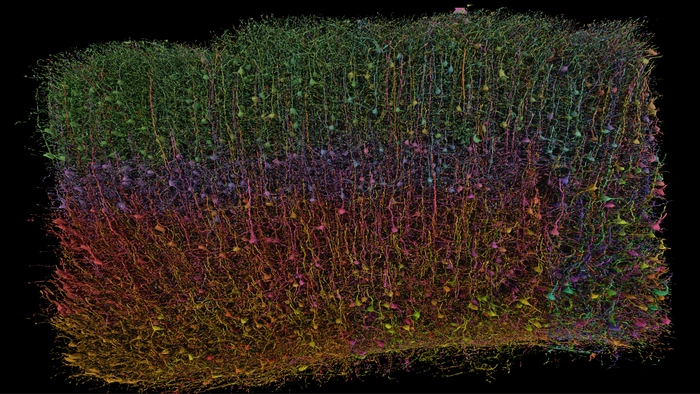
Hi,
Welcome to our third issue. We delve into monumental efforts mapping diversity - from India’s vast genetic landscape revealing millions of unique variants, to the most detailed functional brain map yet created in a mouse. We also explore cutting-edge tools: new enzymes targeting single-stranded DNA, Google’s open AI models accelerating drug discovery, and a long-distance quantum-secured network demo in the UK. Plus, engineered pups with dire wolf traits, sequenced ape genomes, and more breakthroughs. Dive in!
Mapping India’s Genetic Diversity
The Genome India Project analyzed genomes from nearly 10,000 diverse individuals across India, identifying an impressive 180 million genetic variants. A significant portion of these variants, including 7 million novel ones, are unique and previously unrecorded in global databases.
This groundbreaking dataset aims to create a reference genome specific to the Indian population. It holds immense potential for improving disease diagnostics, tailoring personalized medicine, and developing better health interventions for India’s diverse communities.
Read more at Nature Genetics.
More in Genomics
Largest functional brain map yet 🧠

Researchers unveiled the largest functional brain map yet, charting 84,000 neurons and 500 million connections within a poppy-seed-sized piece of mouse visual cortex. They combined electron microscopy of brain structure with recordings of neural activity during visual tasks.
This detailed, publicly available dataset links intricate wiring patterns to specific functions, offering insights into neural computation and potential disease mechanisms.
Read more at Nature and MICrONS Explorer.
New Enzymes Targeting Single-Stranded DNA
Researchers have identified a novel family of enzymes, Ssn endonucleases, capable of specifically cutting single-stranded DNA (ssDNA) at targeted sequences. Previously known tools like CRISPR primarily target double-stranded DNA. This discovery could lead to powerful new tools for biotechnology.
Read more at Nature Communications.
Google Launches TxGemma AI to Speed Up Drug Discovery
Google released TxGemma, a family of open AI models aimed at accelerating therapeutic development. Built on Google’s Gemma, these models predict drug properties throughout the entire discovery process, from target identification to potential clinical trial outcomes.
Available in multiple sizes with ‘predict’ and conversational ‘chat’ versions, TxGemma shows strong performance on various prediction tasks. Google provides resources for researchers to fine-tune the models and use them in complex workflows via the Agentic-Tx system.
Read more at Google Developers.
More AI News
- Google announces Sec-Gemini v1 to aid for cybersecurity applications
- AI to track effectiveness of multiple sclerosis treatments.
- Sociodemographic biases in medical decision making by AI.
- New AI tool to bolster quest for advanced superconductors.
UK Demos Long-Distance Quantum-Secured Network
Researchers demonstrated the UK’s first long-distance (410km) quantum communication network, securely linking Bristol and Cambridge. The network uses standard fibre but integrates multiple quantum techniques like QKD and entanglement distribution.
Successful tests included a quantum-secured video call, highlighting progress towards a national-scale quantum internet resistant to future cyber threats.
Read more at University of Cambridge.
Thank you for taking the time to read this issue of smuklok! We hope you found it interesting.
We're always looking for ways to improve this newsletter. Let us know what you think – your feedback is greatly appreciated. Just reply to this email.
Have a great week ahead and see you next week!
Signing off,